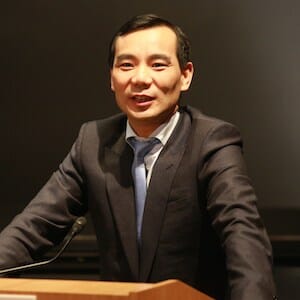
Anbang chairman Wu Xiaohui may find himself under the spotlight of China’s insurance regulators
More trouble could be in the works for China’s most flamboyant insurance company, as regulators are said to be taking a closer look at Anbang. Plus, Vancouver could start taxing empty homes and more mall developers hope to go “asset-light” amidst a broadening retail slump. Read on for all these stories and more.
Anbang Seen Facing Regulatory Headwinds on Its Home Turf
With a powerful network of business friends and associates, Wu Xiaohui, chairman of China’s privately owned Anbang Insurance Group, has the reputation of knowing everyone from the doorman to chairman at the China Insurance Regulatory Commission (CIRC), the industry’s top regulator supervising his business.
But it looks like the smooth sailing that enabled Wu to raise money onshore while making outbound investments has hit choppy waters, with the CIRC beefing up risk control in the booming insurance sector, while the nation’s top leaders are becoming more selective in supporting overseas merger and acquisition attempts. Read more>>
Vancouver Floats Tax on Vacant Homes as Mainland Money Floods City
Vancouver’s mayor Gregor Robertson says he is considering the introduction of a tax on empty homes, amid a roiling debate in the city about the role of Chinese money and offshore investors in North America’s most unaffordable real estate market.
In an interview with Bloomberg TV on Tuesday, Robertson said he was “looking at new regulation and a carrot-and-stick approach to making sure that houses aren’t empty in Vancouver,” including a tax on vacant homes. Read more>>
More Chinese Mall Developers Go Asset-Light as Returns Fade
Chinese shopping mall operators, faced with the rising costs of holding land and the impact on bricks-and-mortar stores of e-commerce, are seeking to securitise their assets and use the cash for expand into new developments.
The so-called asset-light model allows operators to continue to run the mall business and benefit from rental income, although analysts cautioned that it is too early to say yet whether the schemes will help the companies’ bottom line. Read more>>
The Rise and Fall of China’s Bling Dynasty
Continuous growth in Chinese luxury spending is no sure bet. Just look at Japan.
Companies that sell handbags and watches for thousands of dollars have had a rough few years. The Chinese clampdown on corrupt gift-giving hit sales in 2012. Since then, a series of macroeconomic and geopolitical problems, from commodity-price falls to terrorist attacks, have dulled the appetite of luxury shoppers all around the world. Richard Lepeu, chief executive of Swiss watch group Richemont, talks of a “feel-bad” factor. Read more>>
Government Plans Anhui, Fujian High Tech Parks to Foster Innovation
The Chinese government said on Wednesday that it will accelerate building two more national-level development zones to encourage innovation, as the country seeks to foster new engines for growth.
The government approved the establishment of the two “national innovation demonstration zones” in Fujian province and Anhui province, respectively, according to a statement released after the State Council’s executive meeting on Wednesday, chaired by Premier Li Keqiang. Read more>>
Tune in again tomorrow for more news, and be sure to follow @Mingtiandi on Twitter for headlines as they happen.
Leave a Reply